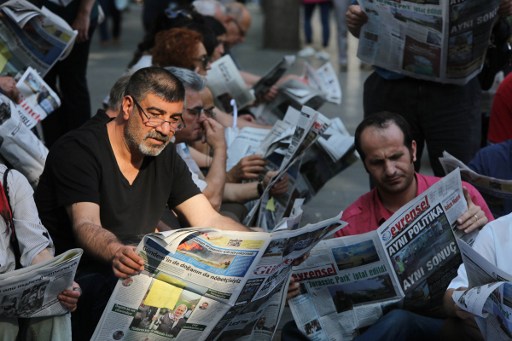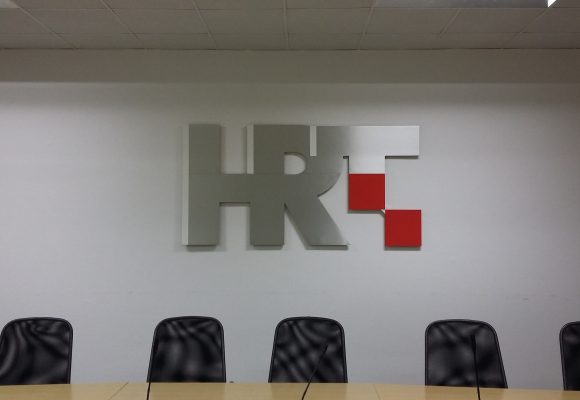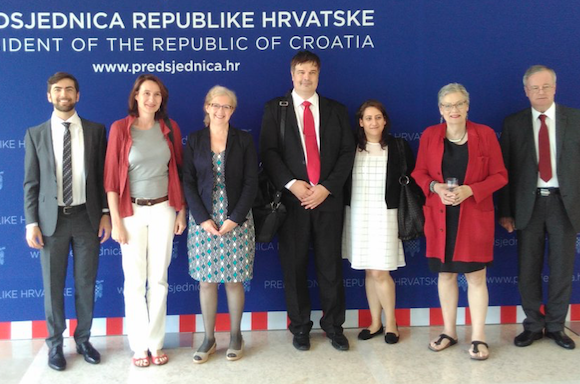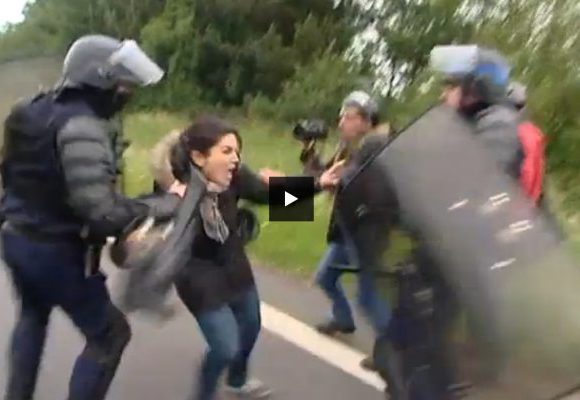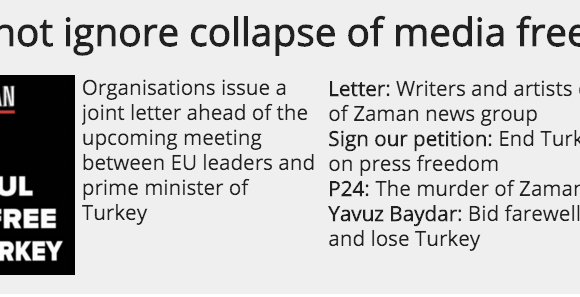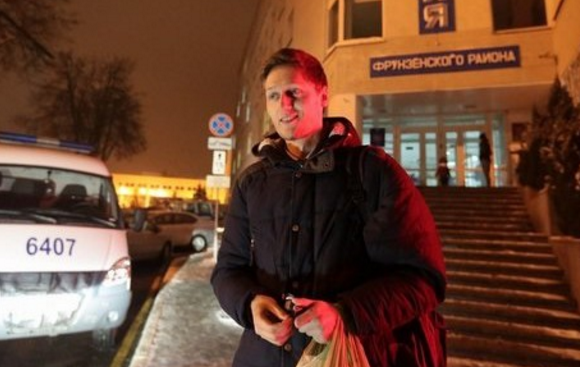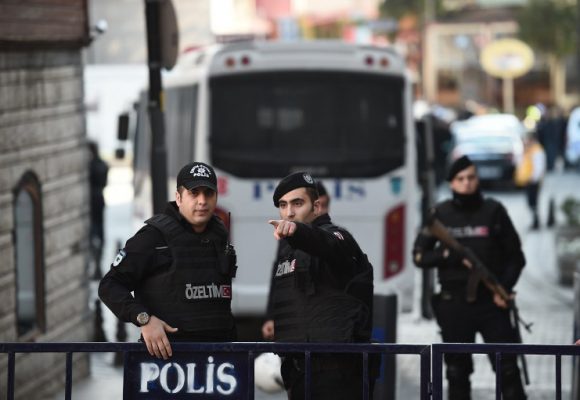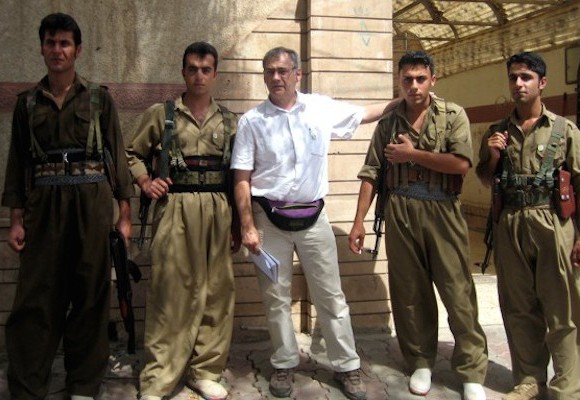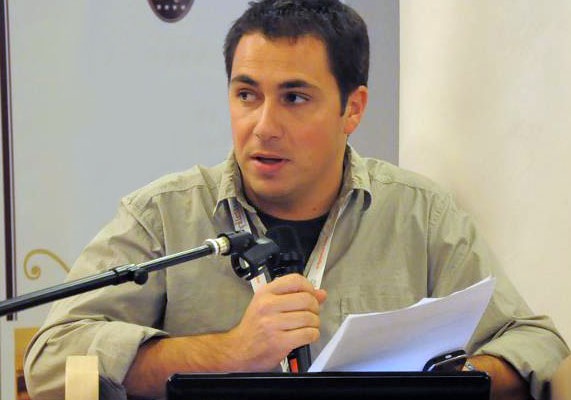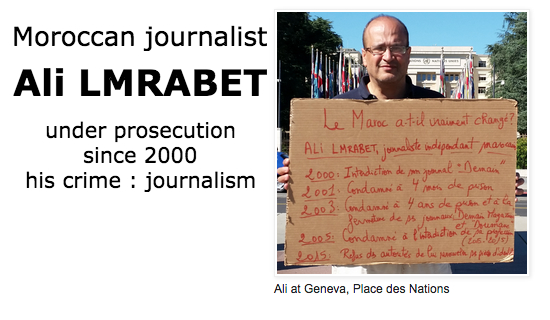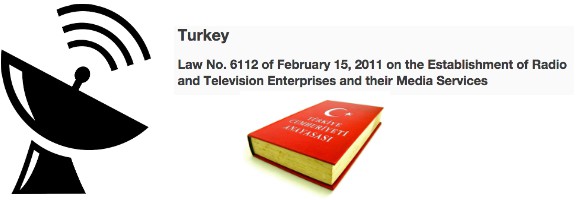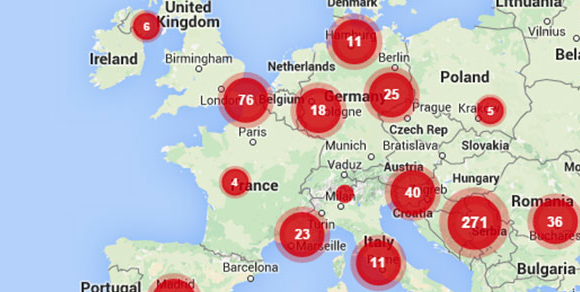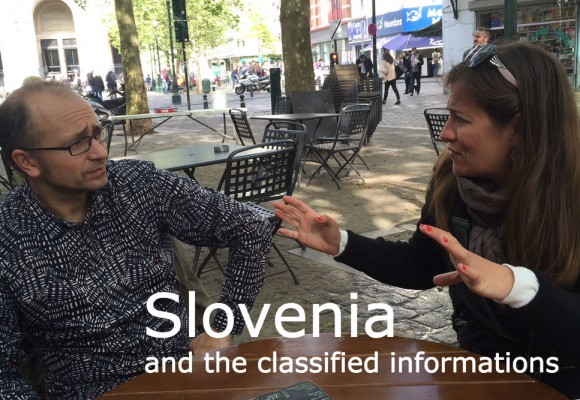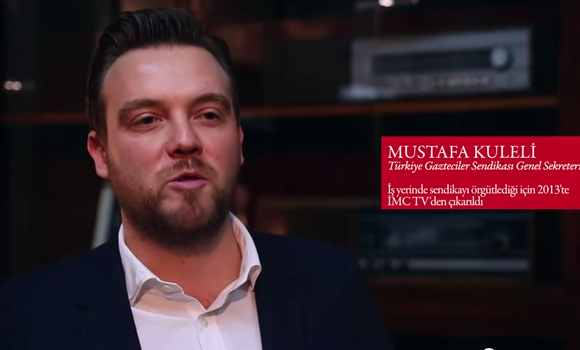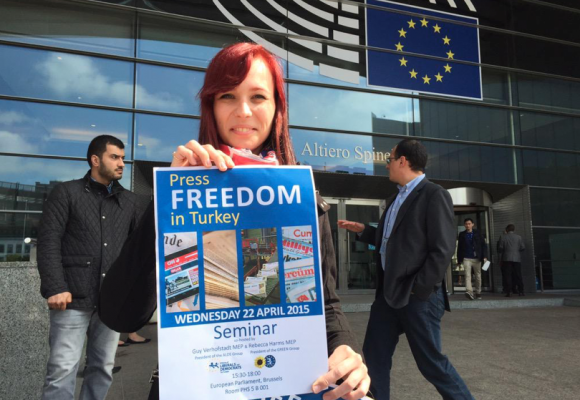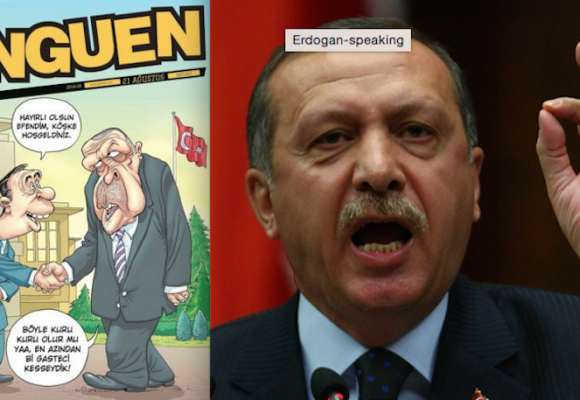#press freedom
Turkey: press freedom in the grip of major crackdown following failed coup
UPDATED 27.07.16 An ongoing crackdown on the media in Turkey has led to the arrests of more journalists and raids on their homes. The International and the European Federation of journalists (IFJ/EFJ) today denounced the deterioration of democratic rule, of which press freedom is one of the pillars. On 22 July, Zehra Dogan, painter and editor at women’s news agency JINHA, was arrested by police in Mardin, south-east of Turkey. She was taken to the Nusaybin police office the following day. During the interrogation, she was accused of “being a member of the terrorist organisation PKK.” The anti-terror prosecutor Irfan…
Croatia urged to promote public broadcaster independence
A delegation of six press freedom organisations concluded a three-day mission to Croatia by calling on the country’s political leaders to guarantee the independence of the public broadcaster HRT as well as of the national electronic media regulator. Members of the delegation said the next Croatian government should act swiftly to reform the current law governing HRT, which does not provide sufficient safeguards against undue political influence over the broadcaster’s operations and output. Delegates specifically highlighted as problematic the process for nominating HRT’s director-general via a parliamentary vote. Public service broadcasting should not be controlled by party politics. Professional standards…
Croatian President says shaming media law should be scrapped
Croatian President Kolinda Grabar-Kitarović told an international media freedom delegation today that she supports efforts to protect the independence of national public broadcaster HRT and to repeal her country’s controversial ‘shaming’ law. While Croatian political parties have traditionally sought to control HRT, alarmingly rapid moves by the outgoing Croatian Democratic Union (HDZ)-led government to replace key positions at the broadcaster have raised international concern. Some observers have warned that the moves represent an attempt to promote a nationalist – and in some cases even historical revisionist – editorial line. The president, in response to concerns raised by the delegation, assured…
France: police violence must stop
On 3 June, the European and International Federations of Journalists (EFJ/IFJ) have submitted the rise of police violence towards journalists in France on the Council of Europe Platform for the protection of journalism and safety of journalists. The EFJ and the IFJ request explanations from French Minister of the Interior Bernard Cazeneuve. The EFJ and the IFJ, as well as their French affiliates, SNJ, SNJ-CGT and CFDT-Journalistes have seen a worrying upsurge of policy violence towards journalists since mid-May on the fringe of the demonstrations against the new French labour law. On 17 May in Paris, cameraman Joël Labat was targeted by a tear-gas…
Letter: EU must not ignore collapse of media freedom in Turkey
Statement: EFJ/IFJ call to drop all the charges against journalist Füsun Erdogan Petition: Sign the petition for public’s right to access information in Turkey Action: EU leaders should react to the political seizure of Zaman media group London, 15 March 2016 The President of the European Council Donald Tusk General Secretariat of the Council of the European Union Rue de la Loi/Wetstraat 175 B-1048 Bruxelles/Brussel Belgique/België CC: Federica Mogherini, High Representative of the European Union for Foreign Affairs and Security Policy Stavros Lambrinidis, EU Special Representative for Human Rights Elmar Brok, Chair of the European Parliament Committee on Foreign Affairs…
Belarus detains and fines journalist for filming police attacking protesters
Paul Dabravolski, a reporter working for the Belarusian news website TUT.BY was arrested and given a fine of 9.450.000 Belarusian rubles (420 EUR) for filming police beating two protesters during a court hearing on a graffiti case on 25 January. The European Federation of Journalists (EFJ) and the Belarusian Association of Journalists (BAJ) have today condemned the arrest and urged the authority to withdraw all charges against Dabravolski. Dabravolski is a member of the BAJ. He was arrested while he was covering a hearing where two supporters were protesting in the court with a banner saying “stop political prosecution”. In a…
Total media ban imposed following deadly explosion in Istanbul
A least 10 people have been killed and dozens injured today (12/01/2015) in the historical center of Istanbul (Turkey) in what appears to be a suicide bomb attack by suspected member of the Islamic State (IS), group has killed 10 people, official reports say. Following the explosion, the Turkey Radio and Television Supreme Council (RTUK) have ordered a broadcast ban interviews related to an explosion. The broadcast ban was followed by a total information ban decided by the 7th Chamber of the Istanbul Court of Peace which forbid the publication of any opinion, interview, images, information – including comments published…
Spanish journalist Manuel Martorell accused of terrorist and denied entry to the U.S.
The European Federation of journalists (EFJ) and the Spanish Federation of Unions of Journalists (FeSP) denounce the American authorities for refusing the visa application of the Spanish journalist Manuel Martorell who works for the online information website cuartopoder.es. An official of the US consulate in Madrid first explained that the visa refusal was based on the homonymy between the journalist and an Ecuadorian national who is the subject of a legal proceeding in the United States. A few days later, the Vice-Consul, Ms. Julie P. Akey signed a letter stating that the visa refusal was due to Martorell’s “terrorist activities”…
Journalist beaten by police officer in Serbia
The International Federation of Journalists (IFJ) and the European Federation of Journalists (EFJ) have today called on the Serbian authorities to investigate the recent attack on journalist Predrag Blagojevic who was repeatedly beaten by a policeman on Saturday 15 August. The affiliates of IFJ and EFJ – the Independent Journalists’ Association (NUNS), the Journalists’ Association of Serbia (UNS) and the Journalists’ Union of Serbia (SINOS, in Serbian) have also condemned the attack and urged the authorities to investigate the case immediately. Blagojevic is the editor for the news portal, Juzne Vesti. He previously received threats while on a journalistic assignment.…
EFJ asks Mogherini to raise the case of journalist Ali Lmrabet with Morrocco
The European Federation of Journalists (EFJ) is calling today (20/07/2015) the EU foreign affairs chief Federica Mogherini to raise the case of the Moroccan journalist Ali Lmrabet during her first visit to Morrocco on July 21 where she will hold meetings with government officials, members of Parliament and civil society. Mrs Mogherini, who is also the vice-president of the EU Commission, will discuss the EU-Morocco partnership and other areas of mutual cooperation related to trade, migration, security and climate change issues. “As the representative voice of European journalists, the EFJ is asking the EU High Representative of the Union for Foreign Affairs…
Turkey: State prosecutors attempt to ban opposition media during election
According to several media reports, the Ankara Chief Public Prosecutor’s Office has urged the Communications Ministry to hamper all media communications linked to the Gülen movement by withdrawing state means used to facilitate the broadcasts. If executed, the general request will lead to forbid specific opposition TV channels to use satellite infrastructure controlled by the state. The office’s Bureau for Crimes against the Constitutional Order sent the Ministry a written request on April 26 to target the broadcasting and publication of TV channels, radio stations, print media outlets and websites owned by the Gülen movement claiming that the US-based preacher Gülen…
Mapping media freedom project extended by the EU
The European Federation of Journalists (EFJ) and Index on Censorship are delighted to announce that Index project to map media freedom in Europe has received funding from the European Commission – one of just two projects selected. Mapping Media Freedom (#ecpmf)– launched as a pilot project in 2014 by Index on Censorship – records threats to media freedom throughout the European Union and EU candidate countries. In the last 12 months, more than 750 violations have been reported, including threats of violence, harassment, intimidation and legal penalties. The map includes threats faced by journalists and media groups at local as well…
Press freedom in Slovenia embarking in a new era
Regarding press freedom “we are certainly embarking in a new era in Slovenia. When the criminal police was asking me questions back in 2013, my case was the first where the Slovenian State decided to prosecute a journalist for publishing allegedly classified information. Today, there are three more cases in pre-trial procedures where four colleagues are now facing similar charges referring to the articles in the criminal code which prohibits the publication of classified information”, explains Anuška Delić (investigative & data journalist at the daily Delo) in an exclusive interview in Brussels with Ricardo Gutiérrez (EFJ General Secretary). In 2011, Anuška Delić wrote…
Journalism is persona non grata in Turkey
A new documentary called Persona non grata*, directed by Tuluhan Tekelioğu and supported by the Platform for Independent Journalism (P24), puts the lights on the poor working conditions of journalists in Turkey. From the basic court reporter to the star columnists of mainstream newspapers, all journalists in the country are currently struggling between legal harassments, political pressures, increasing self-censorship, pressures to quit jobs for covering sensitive issues or pressures to avoid affiliation to a professional trade union movement. In this 41 minute documentary officially presented in Istanbul at the Swedish Consulate for World Press Freedom Day, Mustafa Kuleli (General Secretary of the…
Verhofstadt: “EU Progress Report does not say much about press freedom”
“The annual Progress Reports produced by the European Commission does not say much about the situation of press freedom and freedom of expression in the candidate countries. Therefore, I call the Commission to better focus on those topics as we need a deeper analysis and development on those important topics, specially regarding the situation in Turkey”, said Guy Verhofstadt, member of the European Parliament and leader of the Group of the Alliance of Liberals and Democrats for Europe of (ALDE) , during a seminar on Press Freedom in Turkey co-organized on 22/04/2015 by ALDE and the Greens. The liberal MEP’s call to…
Turkish cartoonists sentenced to jail for insulting Erdogan
Turkish cartoonists Bahadir Baruter and Ozer Aydogan, from the Turkish satirical magazine Penguen, have been found guilty of insulting Turkey’s President Recep Tayyip Erdogan in a cartoon on the cover of the magazine’s August issue. The court sentenced both cartoonists to 11 months and 20 days in prison on March 24. That sentence was subsequently commuted to a fine of 7,000 Liras (2,500 euros) each. The cartoon depicted newly elected Erdogan arriving at his presidential palace and saying: “What a bland celebration. We could have at least sacrificed a journalist.” The prosecutor alleged that the cartoon was insulting in that one…

